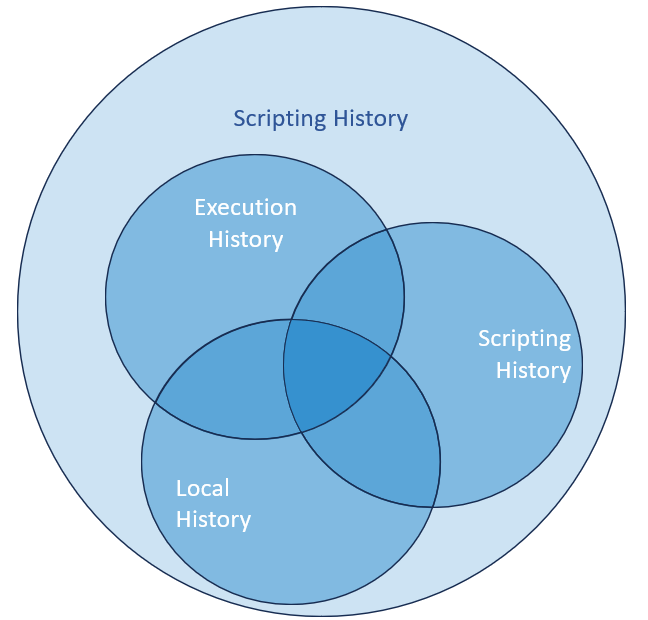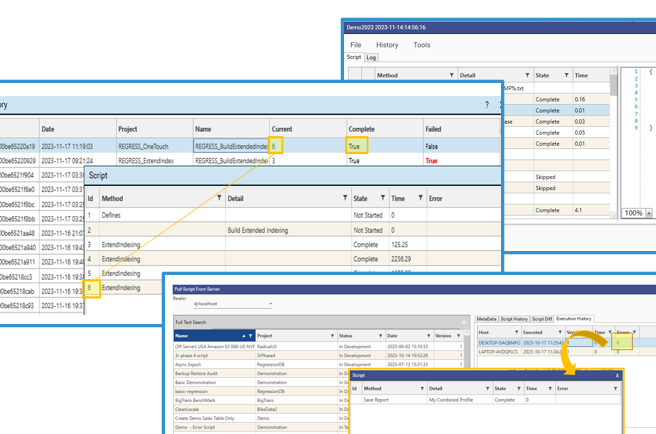Various different types of history are recorded as the user (analyst, engineering, end-user etc) works in a DataJet Project. These can be broadly grouped into:
- Project History - a record of all permanent changes made to the project data
- Scripting History - a record of all API methods executed via Script Editor or Script Runner
There is some overlap between the two types of history, as scripting actions often impact the project data, and so will be recorded in the Project History. Where Project data was changed via scripting actions (either run-time, or via executed scripts), project history actions will also be reflected in the Scripting History.
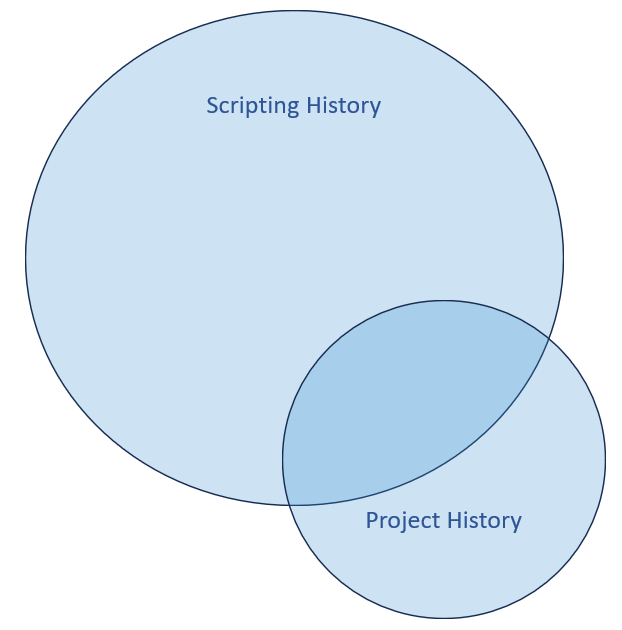
Project History
Project history falls into 2 categories:
- Live Project history - this is the history for the current version of the project
- Archived Project history - this is the history for projects that have been "dropped", "archived" or "over-written"
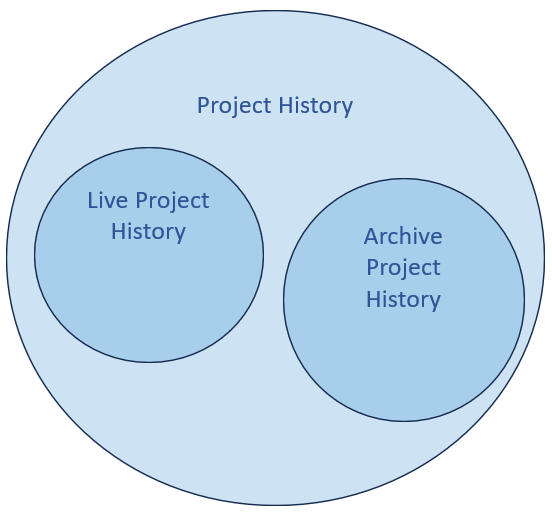
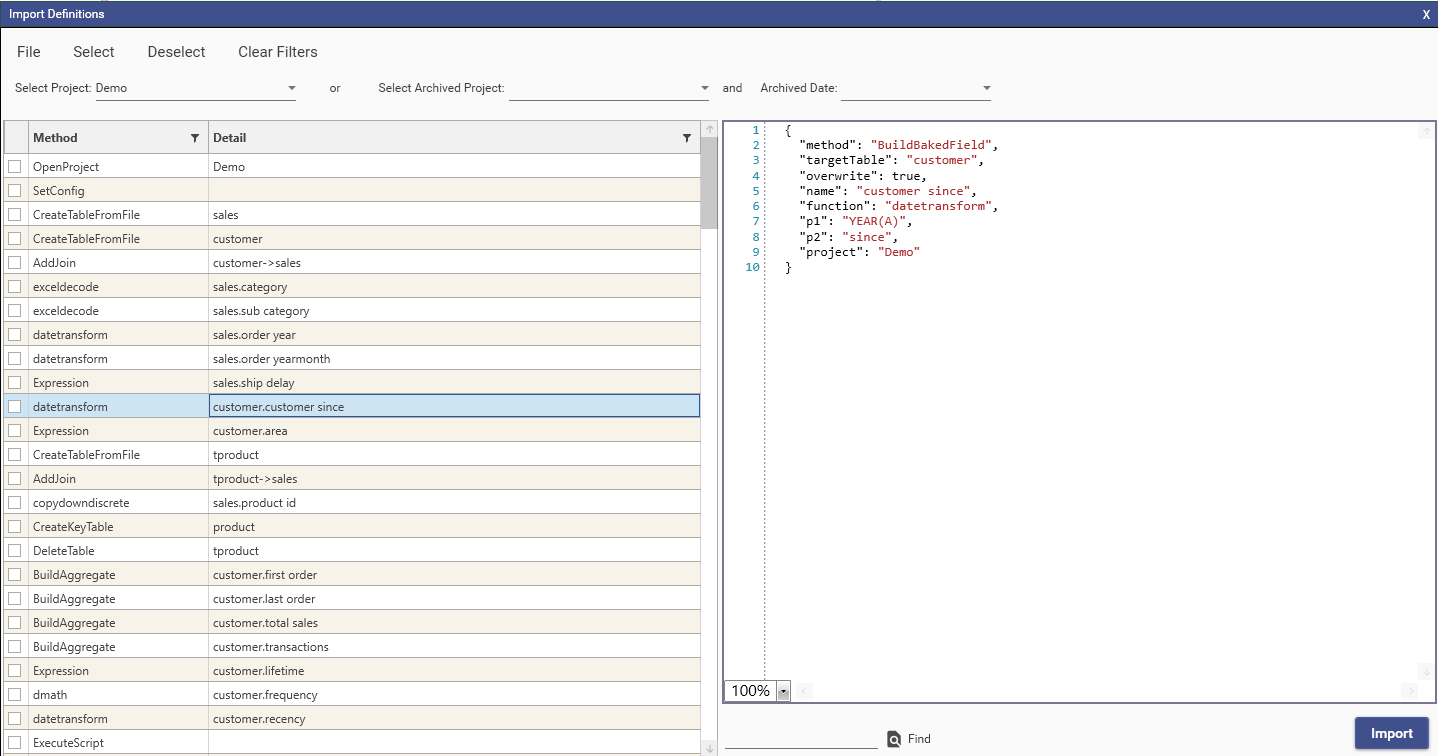
Scripting History
Scripting history falls into 3 categories:
- Execution History - also called run-time history. This is the record of script-editor actions such as "Run", "Run selected", "Run to" and "Run from".
- Execution history is stored in the client machine,
- Execution history is grouped by Project Name > Execution Time
- Execution History includes details of the exact JSON method that was executed
- Local History - this is a chronological record of all scripts that have been executed, either via Remote Script Execution, ExecuteStoredScript, ExecuteScript or "Run as Job"
- Local history is available for currently executing scripts, and therefore shows execution progress for long-running scripts
- Local history does not have a record of JSON method details, but does store execution results, including timing
- Script history - this is a permanent record of script execution for stored scripts that are stored in the Script Hub.
